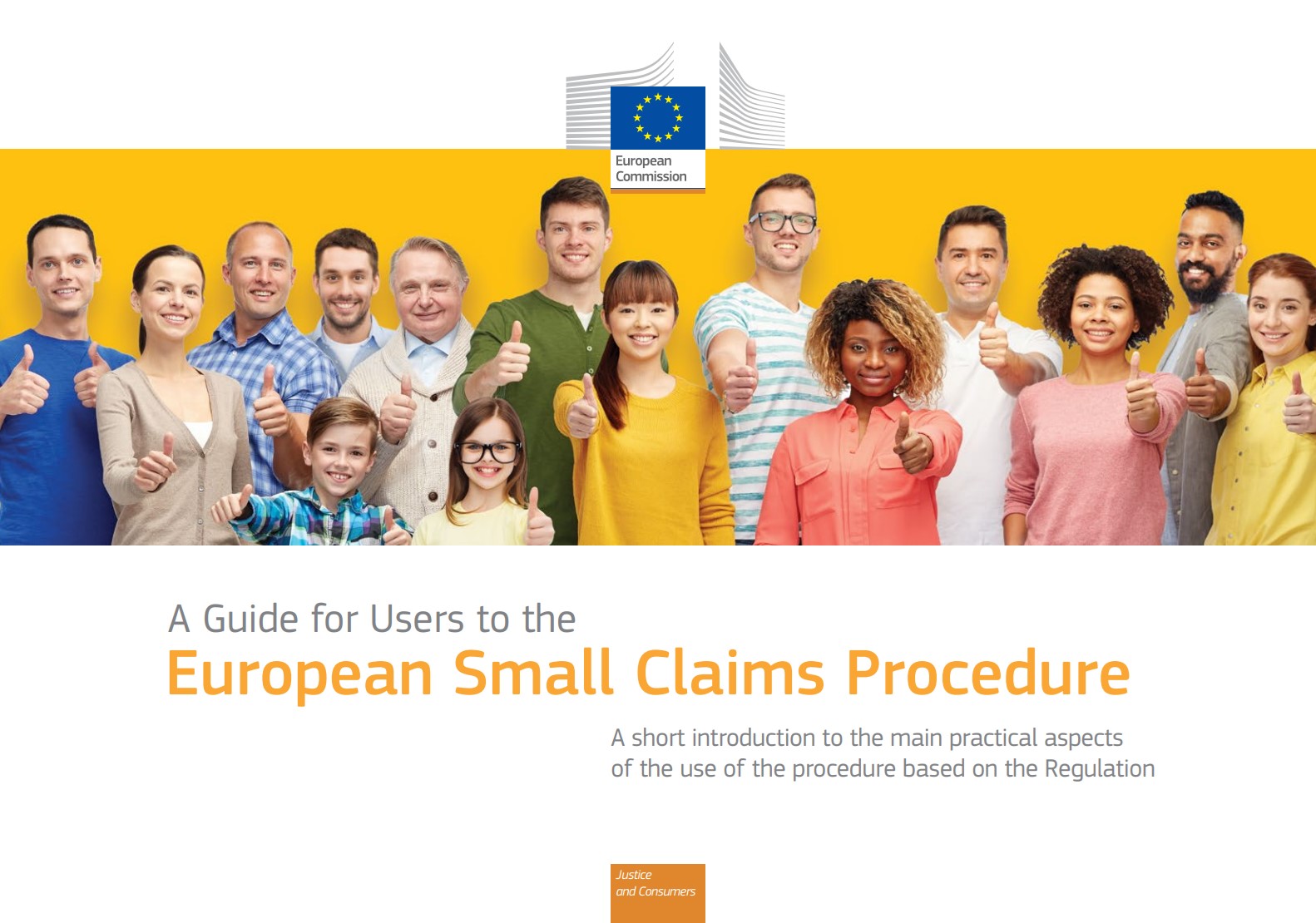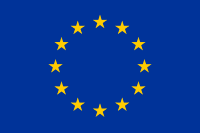Small Claims
Allgemeine Informationen über das Verfahren
Das europäische Verfahren für geringfügige Forderungen findet bei grenzüberschreitenden Rechtsstreitigkeiten in Zivil- und Handelssachen Anwendung, wenn die Forderung 5.000,00 € nicht übersteigt. Seit 2009 steht es in allen EU-Mitgliedstaaten außer Dänemark als Alternative zu nationalen Verfahren zur Verfügung. Verordnung (EG) Nr. 861/2007 des Europäischen Parlaments und des Rates vom 11. Juli 2007 zur Einführung eines europäischen Verfahrens für geringfügige Forderungen. Sie können den Rechtsakt hier einsehen: https://eur-lex.europa.eu/legal-content/EN/TXT/?uri=CELEX%3A32007R0861
Das mit dieser Verordnung eingeführte europäische Verfahren für geringfügige Forderungen soll den Zugang zum Recht bei grenzüberschreitenden Streitigkeiten mit geringem Streitwert in Zivil- und Handelssachen vereinfachen. "Geringfügige Forderungen" sind Rechtssachen, bei denen es um Beträge unter 5 000,00 € geht, ohne Zinsen, Kosten und Auslagen (zum Zeitpunkt des Eingangs des Antragsformulars beim zuständigen Gericht). Die im Rahmen dieses Verfahrens ergangenen Entscheidungen werden in den anderen Mitgliedstaaten anerkannt und sind vollstreckbar, ohne dass eine Vollstreckbarerklärung erforderlich ist. Das Verfahren ist fakultativ und wird als Alternative zu den nach dem nationalen Recht der Mitgliedstaaten bestehenden Möglichkeiten angeboten.
Das europäische Verfahren für geringfügige Forderungen umfasst eine Reihe von Schritten:
1. Einreichung der Forderung.
Um eine Klage über einen Betrag von weniger als 5.000,00 € einzureichen, füllt der Kläger das in Anhang I der Verordnung vorgesehene Standard-Klageformular A aus und reicht es beim zuständigen Gericht in einer Form ein, die für den Mitgliedstaat, in dem die Klage erhoben wird, zulässig ist.
2. Sprachen und Übersetzungen
Die Klageschrift und die Beweismittel sind in einer der Sprachen des Gerichts einzureichen. Verweigert eine Partei die Annahme eines Schriftstücks, weil es in einer Sprache abgefasst ist, die sie nicht versteht, oder in einer anderen Sprache als einer der Amtssprachen des Empfangsmitgliedstaats, so teilt das Gericht dies der anderen Partei mit, damit diese eine Übersetzung vorlegen kann.
Das Bewerbungsformular
3. Berichtigung und/oder Vervollständigung des Antragsformulars
Hat der Antragsteller keine ausreichenden Angaben gemacht, fordert das Gericht ihn mit dem Formblatt B (Anhang II) auf, die fehlenden Angaben nachzureichen. Der Antrag wird abgelehnt, wenn der Antragsteller den Antrag nicht fristgerecht vervollständigt oder berichtigt oder wenn er offensichtlich unbegründet oder unzulässig ist.
4. Benachrichtigung des Beklagten
Sobald das Gericht das ordnungsgemäß ausgefüllte Antragsformular A erhalten hat, erstellt es ein Standardantwortformular C (Anhang III). Das Formblatt C sowie eine Kopie der Klage und der Belege werden dem Beklagten innerhalb von 14 Tagen per Post mit datierter Empfangsbestätigung zugestellt. Der Antragsgegner hat dann 30 Tage Zeit, um seine Antwort zu verfassen und zurückzusenden, gerechnet ab dem Datum der Zustellung des Antwortformulars. Die Antwort des Antragsgegners wird vom Gericht innerhalb von 14 Tagen nach Erhalt an den Antragsteller weitergeleitet.
Widerklage
5. Widerklage
Eine vom Beklagten eingereichte Widerklage (unter Verwendung des Formblatts A) wird dem Kläger auf dieselbe Weise zugestellt wie die ursprüngliche Klage dem Beklagten zugestellt wurde. Beträgt der Betrag der Widerklage mehr als 5 000,00 €, werden sowohl die Klage als auch die Widerklage nach dem einschlägigen Verfahrensrecht des Mitgliedstaats behandelt, in dem die Klage erhoben wird (und nicht nach dem europäischen Verfahren für geringfügige Forderungen).
Das Urteil
6. Das Urteil wird in 30 Tagen gefällt
Das Gericht muss innerhalb von 30 Tagen nach Eingang der Klageerwiderung des Beklagten (oder des Klägers, wenn eine Widerklage vorliegt) ein Urteil erlassen. Es kann jedoch beschließen, weitere Informationen anzufordern, Beweise zu erheben oder die Parteien zu einer mündlichen Verhandlung vorzuladen. Auf Antrag einer Partei stellt das Gericht eine Bescheinigung über die Entscheidung (ohne weitere Kosten) unter Verwendung des Formblatts D (Anhang IV) aus.
Europäische Gerichtsverfahren
Unser Fachwissen: Verfahren für geringfügige Forderungen Verordnung (EG) 861/2007, grenzüberschreitende Forderungen EG-Verordnung (EG) 44/2001 (Brüssel I) und (EG) 1215/2012 (Brüssel Ia), ROM I und II.
Beweise
7. Die Beweisaufnahme
Das Gericht bestimmt den Umfang der für seine Entscheidung erforderlichen Beweise und die Art und Weise der Beweiserhebung, wobei es das einfachste und am wenigsten aufwändige Verfahren anwendet.
8. Mündliche Anhörungen
Das Gericht führt eine mündliche Verhandlung nur durch, wenn dies notwendig erscheint oder wenn eine der Parteien dies beantragt. Der Antrag kann abgelehnt werden, wenn eine mündliche Verhandlung für einen fairen Ablauf des Verfahrens offensichtlich nicht erforderlich ist. Die Anhörung kann per Videokonferenz oder mit Hilfe anderer Kommunikationstechniken durchgeführt werden.
Vollstreckung
9. Die Vollstreckung des Urteils
Die Urteile werden in den anderen Mitgliedstaaten anerkannt und vollstreckt und können im Vollstreckungsmitgliedstaat nicht in der Sache selbst nachgeprüft werden. Die Vollstreckung richtet sich nach dem Recht des Vollstreckungsmitgliedstaats. Die Partei muss weder einen bevollmächtigten Vertreter noch eine Postanschrift in dem Mitgliedstaat haben, um das Vollstreckungsverfahren durchzuführen.
Kosten
Die Kosten des Verfahrens gehen zu Lasten der unterlegenen Partei.







